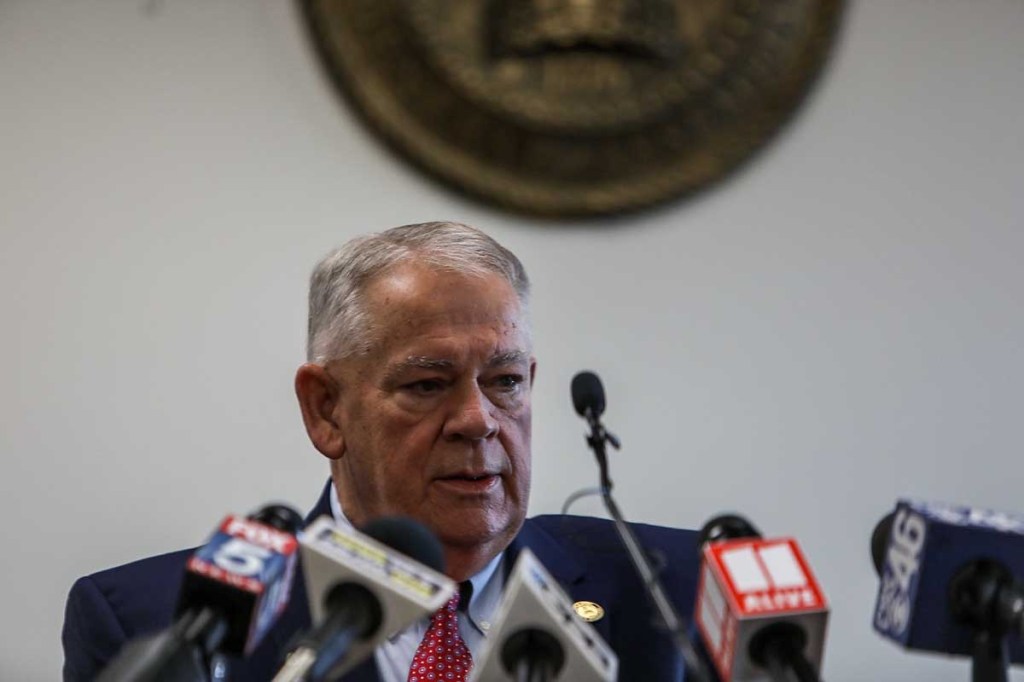Budget battles spur oversight bills
Published 12:45 pm Tuesday, March 10, 2020

- House Speaker David Ralston, Blue Ridge-Republican, answers questions from reporters during a pre-session media conference on Jan. 9 in Atlanta.
ATLANTA — The budget battles between the governor and the General Assembly have spurred two budget process oversight bills that passed the House Tuesday.
House Speaker David Ralston announced Monday legislation to ensure the “independence of the House” from the governor’s office that quickly passed through committees to the floor.
“The governor and the office of the governor is entitled to our respect. I insist that my staff and those people around me respect the governor and his office,” Ralston said. “Without mutual respect, our state government, and indeed, our state, suffer. And so it is within that context that sometimes tweaks are required.”
A pair of bills — House Bills 1111 and 1112 — put oversight on the budget process and overwhelmingly passed a floor vote.
HB1111 limits the governor’s ability to withhold appropriated funds and mandates notice to the General Assembly when first quarter revenue is down 1% from the previous fiscal year.
The governor is not allowed to hold funds more than the shortfall and all funds withheld would be applied equally across state agencies. Any budget recommendations from the governor’s office would be required to come 30 days before the regular legislative session.
The measure “provides for transparency and notice” to lawmakers of budget decisions, Ralston said.
The bill passed 144-14.
HB1112 would require state agencies to provide budgetary information to the House Budget and Research Office and the Senate Budget and Evaluation Office at the same time information is given to the Governor’s Office of Planning and Budget.
It also sparks the creation of a State Council of Economic Advisors consisting of five members — three members appointed by the governor, one appointed by the House and one appointed by the Senate — that meets quarterly for budget analysis. One of the governor’s members is required to be his economic advisor.
“It will allow some legislative input into formulating the revenue estimate I think it’s a very important bill and one I’m very proud of,” Ralston told reporters. “I think that it will give some clarity to the revenue estimate setting process going forward.”
Rep. Clay Pirkle, R-Ashburn, the lead on the bill, said it would provide “budget accountability.”
“It does not take away the governor’s exclusive authority to set our revenue estimate,” he said.
But provides “additional eyeballs” on the budget process, Pirkle said.
The bill passed in a floor vote 128-28.
“It is my sincere hope that these measures will help us avoid some of the problems that we had early this session and ensure a more transparent and orderly budget process,” Ralston said. “I will continue without apology to protect and defend the independence of the House.”
Ralston has been vocal about his frustration with budget decisions after Gov. Brian Kemp mandated that state agencies cut their budgets by 4% this year and 6% next year to account for revenue shortfalls and the governor’s budget item priorities.
“We tried to work in a very cooperative way with the administration going back to last September, to get information so that we would be equipped in the best possible way to deal with the proposals to cut the budget,” Ralston said Tuesday. “Using sugar instead of vinegar didn’t work very well. I think that probably caused us to think a little bit about how we can do things better.”
The governor’s office declined comment on the bills but would likely veto the measures.





